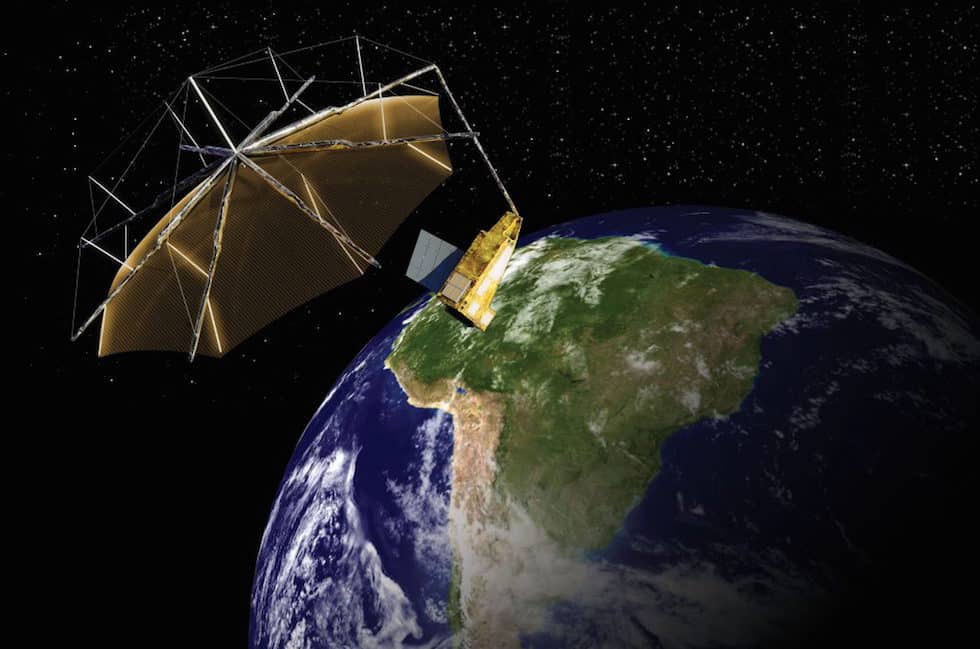
The Biomass satellite is the European Space Agency’s (ESA) next Earth Explorer mission, with a launch scheduled for 2021.
According to Airbus Defence and Space, the spacecraft will carry the first space-borne P-band synthetic aperture radar that will deliver accurate maps of tropical, temperate and boreal forest biomass that cannot be obtained with ground measurement techniques.
The five-year mission will see at least eight growth cycles in the worlds’ forests and during that time the Biomass satellite will collect data on global forests to determine the distribution of above-ground biomass in these forests and measure annual changes.
In a statement, François Auque, head of Space Systems at Airbus, said: “Collecting accurate data on the world’s biomass is key to our understanding of the world’s climate. We are very pleased to help ESA with this mission that will provide key data for scientists and climate scientists around the world.”
By using a P-band synthetic-aperture radar, the mission will use all-weather imaging from space to estimate forest biomass. The satellite will also be able to measure paleo aquifers in desert regions to find new water sources in arid regions as well as contribute to observations of ice sheet dynamics, subsurface geology and forest topography. Because Biomass will see through the forest canopy to the ground, it will be able to provide terrain height maps, improving current Digital Elevation Models in densely forested areas.
Biomass data will support REDD+, a UN climate change initiative aimed at reducing emissions due to deforestation, by systematically monitoring forests in vulnerable areas with no need for ground intervention.




Project to investigate hybrid approach to titanium manufacturing
What is this a hybrid of? Superplastic forming tends to be performed slowly as otherwise the behaviour is the hot creep that typifies hot...